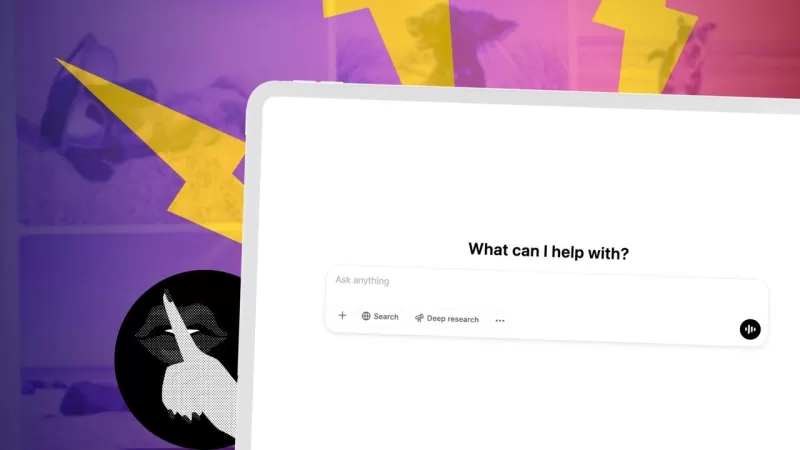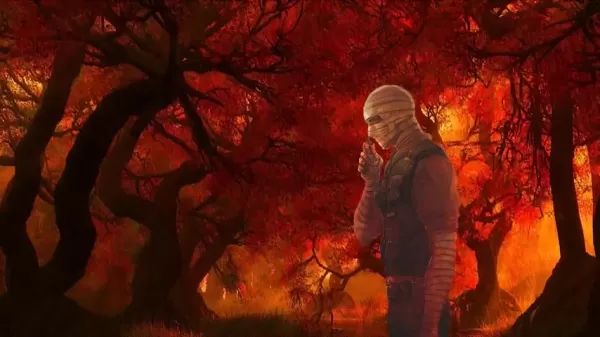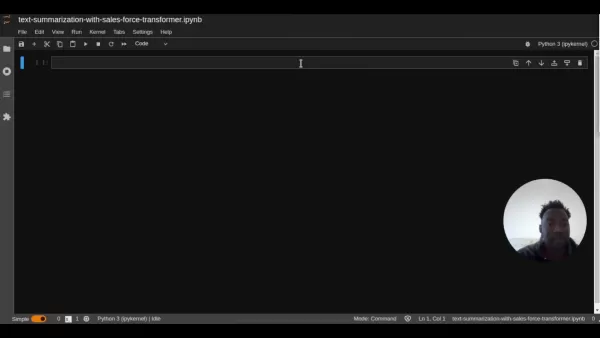AI Boosts Creativity Ethically, Without Copying Artists

Since generative AI burst onto the scene, one of the most engaging and user-friendly applications has been AI text-to-media generators. These tools have captivated everyone from business professionals to casual users, allowing them to create anything from images to videos with just a text prompt and a click. It's a fun and accessible way to bring visions to life.
However, beneath the surface of this seemingly innocuous technology lies a complex issue for artists.
The Issue
Many leading AI media generators, including the trailblazer OpenAI's DALL-E 2, have trained their models by scraping the internet. This includes using original works from artists without their explicit permission. This practice raises significant concerns as it allows for the replication of artists' works—ranging from photographs and paintings to poems, books, and songs—without their consent. As a result, artists lose control over the reproduction of their work, the uniqueness of their creative style, and potential revenue that AI companies generate from these replications.
The relationship between AI companies, these AI models, and artists has become extractive, with artists feeling that their life's work is being exploited for corporate profit. Many have voiced their concerns, calling for AI companies to consider and fairly compensate artists when developing these models.
Ed Newton-Rex, a composer and former AI industry insider, founded Fairly Trained in 2024. This nonprofit aims to certify generative AI companies for ethical training data practices. Newton-Rex left Stability AI, where he led the development of Stable Audio, due to the company's stance on training AI models using artists' works without licensing.
During a fireside chat at South by Southwest (SXSW), Newton-Rex shed light on the broader copyright issue. He emphasized that using artists' work without permission is not only unfair but also intensifies competition in an already crowded market, using the artists' own ideas against them. "In generative AI, you have companies with billions and billions of dollars, often going against creators' wishes, and using them to create these hyper, hyper-scalable competitors to those creatives," he remarked.
In the U.S., AI companies can legally train their models on copyrighted materials under the doctrine of Fair Use, which allows the use of existing works to create something new. With current laws not explicitly favoring creatives, the question arises: Can artists and AI systems coexist in a way that benefits both? The answer is yes, and the solution may involve licensing.
Steps Companies Can Take
AI text-to-media generators provide undeniable accessibility, enabling anyone to create regardless of skill or resources. Ideally, these tools should support and enrich the creative ecosystem, not supplant it. According to Newton-Rex, the first step is straightforward: "Firstly, you can't steal stuff."
Some companies are already adopting this approach. In 2023, Getty Images launched Generative AI by Getty Images, trained solely on their extensive stock image library, ensuring ongoing revenue for those whose work was used. Similarly, Adobe's Firefly model, trained on Adobe Stock images, openly licensed content, and public domain content, prioritizes commercial safety and compensates creators whose work contributed to the training dataset.
However, many companies shy away from this path due to challenges like the cost and time required to access and create a clean dataset. This is particularly problematic for AI companies eager to launch new models and stay competitive in the AI race. "It does slow you down, but I think clearly you ultimately end up in the same place, and you do it without breaking the law and without turning the entire creative industry and the world of creatives against you, which I think is actually another huge misstep for AI companies," Newton-Rex noted.
Another important consideration is the use case of these models. With content creation becoming easier, there's a risk of flooding media platforms with AI-generated content, such as music, images, and videos. Newton-Rex warns that this could dilute the interest in and revenues from original works.
Related article
 Seeking Faith and Purpose in an Age of Skepticism
In our modern age of scientific inquiry and critical thinking, maintaining spiritual faith often feels like walking against the tide. Many struggle to reconcile timeless beliefs with contemporary skepticism, leaving them longing for deeper meaning. T
Seeking Faith and Purpose in an Age of Skepticism
In our modern age of scientific inquiry and critical thinking, maintaining spiritual faith often feels like walking against the tide. Many struggle to reconcile timeless beliefs with contemporary skepticism, leaving them longing for deeper meaning. T
 How ChatGPT Works: Capabilities, Applications, and Future Implications
The rapid evolution of artificial intelligence is transforming digital interactions and communication. Leading this transformation is ChatGPT, an advanced conversational AI that sets new standards for natural language processing. This in-depth examin
How ChatGPT Works: Capabilities, Applications, and Future Implications
The rapid evolution of artificial intelligence is transforming digital interactions and communication. Leading this transformation is ChatGPT, an advanced conversational AI that sets new standards for natural language processing. This in-depth examin
 Salesforce’s Transformer Model Guide: AI Text Summarization Explained
In an era where information overload is the norm, AI-powered text summarization has become an indispensable tool for extracting key insights from lengthy documents. This comprehensive guide examines Salesforce's groundbreaking AI summarization techno
Comments (23)
0/200
Salesforce’s Transformer Model Guide: AI Text Summarization Explained
In an era where information overload is the norm, AI-powered text summarization has become an indispensable tool for extracting key insights from lengthy documents. This comprehensive guide examines Salesforce's groundbreaking AI summarization techno
Comments (23)
0/200
![LucasNelson]() LucasNelson
LucasNelson
 August 24, 2025 at 9:01:19 AM EDT
August 24, 2025 at 9:01:19 AM EDT
This AI text-to-media stuff is wild! I tried making a sci-fi movie poster with just a few words, and it looked legit. But I wonder, are artists cool with this not copying their style? 🤔


 0
0
![LarryMartinez]() LarryMartinez
LarryMartinez
 August 16, 2025 at 7:00:59 AM EDT
August 16, 2025 at 7:00:59 AM EDT
AI text-to-media tools sound like a game-changer for creativity! I’m curious how they ensure no artist’s work is copied—ethics in AI is tricky but super important. 😊


 0
0
![KennethWalker]() KennethWalker
KennethWalker
 July 27, 2025 at 9:19:05 PM EDT
July 27, 2025 at 9:19:05 PM EDT
This AI art stuff is wild! I tried making a sci-fi cityscape with a text prompt, and it was like magic—unique visuals, no artist rip-offs. But I wonder, will it make human artists obsolete or just spark new creative vibes? 🤔


 0
0
![JerryMoore]() JerryMoore
JerryMoore
 April 19, 2025 at 11:41:15 PM EDT
April 19, 2025 at 11:41:15 PM EDT
AI Boosts Creativity 정말 멋져요! 누구의 작품도 복사하지 않고 멋진 이미지와 비디오를 만드는 게 정말 쉽습니다. 윤리적인 점이 마음에 들어요. 하지만 출력이 때때로 너무 일반적일 때가 있어요. 그래도 창의력을 자극하는 훌륭한 도구입니다! 🎨


 0
0
![JackHernández]() JackHernández
JackHernández
 April 18, 2025 at 10:33:33 PM EDT
April 18, 2025 at 10:33:33 PM EDT
AI Boosts Creativity is awesome! It's so easy to create cool images and videos without copying anyone. Love how ethical it is. But sometimes, the output can be a bit too generic. Still, a great tool for sparking creativity! 🎨


 0
0
![RogerGonzalez]() RogerGonzalez
RogerGonzalez
 April 18, 2025 at 10:10:11 PM EDT
April 18, 2025 at 10:10:11 PM EDT
AI Boosts Creativity es genial! Es muy fácil crear imágenes y videos cool sin copiar a nadie. Me encanta lo ético que es. Pero a veces, el resultado puede ser un poco demasiado genérico. Aún así, una gran herramienta para despertar la creatividad! 🎨


 0
0

Since generative AI burst onto the scene, one of the most engaging and user-friendly applications has been AI text-to-media generators. These tools have captivated everyone from business professionals to casual users, allowing them to create anything from images to videos with just a text prompt and a click. It's a fun and accessible way to bring visions to life.
However, beneath the surface of this seemingly innocuous technology lies a complex issue for artists.
The Issue
Many leading AI media generators, including the trailblazer OpenAI's DALL-E 2, have trained their models by scraping the internet. This includes using original works from artists without their explicit permission. This practice raises significant concerns as it allows for the replication of artists' works—ranging from photographs and paintings to poems, books, and songs—without their consent. As a result, artists lose control over the reproduction of their work, the uniqueness of their creative style, and potential revenue that AI companies generate from these replications.
The relationship between AI companies, these AI models, and artists has become extractive, with artists feeling that their life's work is being exploited for corporate profit. Many have voiced their concerns, calling for AI companies to consider and fairly compensate artists when developing these models.
Ed Newton-Rex, a composer and former AI industry insider, founded Fairly Trained in 2024. This nonprofit aims to certify generative AI companies for ethical training data practices. Newton-Rex left Stability AI, where he led the development of Stable Audio, due to the company's stance on training AI models using artists' works without licensing.
During a fireside chat at South by Southwest (SXSW), Newton-Rex shed light on the broader copyright issue. He emphasized that using artists' work without permission is not only unfair but also intensifies competition in an already crowded market, using the artists' own ideas against them. "In generative AI, you have companies with billions and billions of dollars, often going against creators' wishes, and using them to create these hyper, hyper-scalable competitors to those creatives," he remarked.
In the U.S., AI companies can legally train their models on copyrighted materials under the doctrine of Fair Use, which allows the use of existing works to create something new. With current laws not explicitly favoring creatives, the question arises: Can artists and AI systems coexist in a way that benefits both? The answer is yes, and the solution may involve licensing.
Steps Companies Can Take
AI text-to-media generators provide undeniable accessibility, enabling anyone to create regardless of skill or resources. Ideally, these tools should support and enrich the creative ecosystem, not supplant it. According to Newton-Rex, the first step is straightforward: "Firstly, you can't steal stuff."
Some companies are already adopting this approach. In 2023, Getty Images launched Generative AI by Getty Images, trained solely on their extensive stock image library, ensuring ongoing revenue for those whose work was used. Similarly, Adobe's Firefly model, trained on Adobe Stock images, openly licensed content, and public domain content, prioritizes commercial safety and compensates creators whose work contributed to the training dataset.
However, many companies shy away from this path due to challenges like the cost and time required to access and create a clean dataset. This is particularly problematic for AI companies eager to launch new models and stay competitive in the AI race. "It does slow you down, but I think clearly you ultimately end up in the same place, and you do it without breaking the law and without turning the entire creative industry and the world of creatives against you, which I think is actually another huge misstep for AI companies," Newton-Rex noted.
Another important consideration is the use case of these models. With content creation becoming easier, there's a risk of flooding media platforms with AI-generated content, such as music, images, and videos. Newton-Rex warns that this could dilute the interest in and revenues from original works.
 Seeking Faith and Purpose in an Age of Skepticism
In our modern age of scientific inquiry and critical thinking, maintaining spiritual faith often feels like walking against the tide. Many struggle to reconcile timeless beliefs with contemporary skepticism, leaving them longing for deeper meaning. T
Seeking Faith and Purpose in an Age of Skepticism
In our modern age of scientific inquiry and critical thinking, maintaining spiritual faith often feels like walking against the tide. Many struggle to reconcile timeless beliefs with contemporary skepticism, leaving them longing for deeper meaning. T
 How ChatGPT Works: Capabilities, Applications, and Future Implications
The rapid evolution of artificial intelligence is transforming digital interactions and communication. Leading this transformation is ChatGPT, an advanced conversational AI that sets new standards for natural language processing. This in-depth examin
How ChatGPT Works: Capabilities, Applications, and Future Implications
The rapid evolution of artificial intelligence is transforming digital interactions and communication. Leading this transformation is ChatGPT, an advanced conversational AI that sets new standards for natural language processing. This in-depth examin
 Salesforce’s Transformer Model Guide: AI Text Summarization Explained
In an era where information overload is the norm, AI-powered text summarization has become an indispensable tool for extracting key insights from lengthy documents. This comprehensive guide examines Salesforce's groundbreaking AI summarization techno
Salesforce’s Transformer Model Guide: AI Text Summarization Explained
In an era where information overload is the norm, AI-powered text summarization has become an indispensable tool for extracting key insights from lengthy documents. This comprehensive guide examines Salesforce's groundbreaking AI summarization techno
 August 24, 2025 at 9:01:19 AM EDT
August 24, 2025 at 9:01:19 AM EDT
This AI text-to-media stuff is wild! I tried making a sci-fi movie poster with just a few words, and it looked legit. But I wonder, are artists cool with this not copying their style? 🤔


 0
0
 August 16, 2025 at 7:00:59 AM EDT
August 16, 2025 at 7:00:59 AM EDT
AI text-to-media tools sound like a game-changer for creativity! I’m curious how they ensure no artist’s work is copied—ethics in AI is tricky but super important. 😊


 0
0
 July 27, 2025 at 9:19:05 PM EDT
July 27, 2025 at 9:19:05 PM EDT
This AI art stuff is wild! I tried making a sci-fi cityscape with a text prompt, and it was like magic—unique visuals, no artist rip-offs. But I wonder, will it make human artists obsolete or just spark new creative vibes? 🤔


 0
0
 April 19, 2025 at 11:41:15 PM EDT
April 19, 2025 at 11:41:15 PM EDT
AI Boosts Creativity 정말 멋져요! 누구의 작품도 복사하지 않고 멋진 이미지와 비디오를 만드는 게 정말 쉽습니다. 윤리적인 점이 마음에 들어요. 하지만 출력이 때때로 너무 일반적일 때가 있어요. 그래도 창의력을 자극하는 훌륭한 도구입니다! 🎨


 0
0
 April 18, 2025 at 10:33:33 PM EDT
April 18, 2025 at 10:33:33 PM EDT
AI Boosts Creativity is awesome! It's so easy to create cool images and videos without copying anyone. Love how ethical it is. But sometimes, the output can be a bit too generic. Still, a great tool for sparking creativity! 🎨


 0
0
 April 18, 2025 at 10:10:11 PM EDT
April 18, 2025 at 10:10:11 PM EDT
AI Boosts Creativity es genial! Es muy fácil crear imágenes y videos cool sin copiar a nadie. Me encanta lo ético que es. Pero a veces, el resultado puede ser un poco demasiado genérico. Aún así, una gran herramienta para despertar la creatividad! 🎨


 0
0





























